Shows
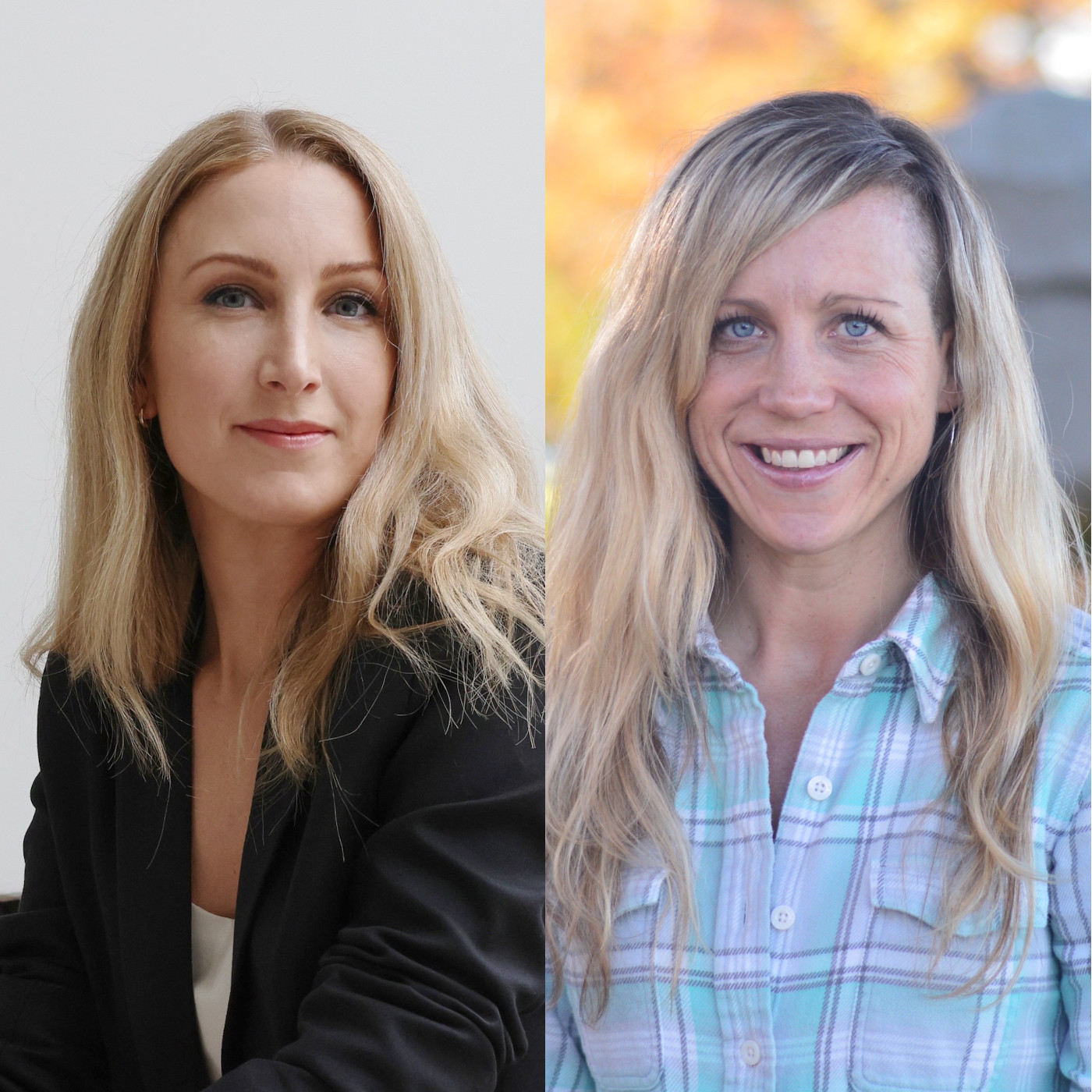
Big Closets Small PlanetCLIMATE ACTION WEEK: Do we need to reimagine growth in apparel? Textile Exchange makes the case.A few years ago Professor Jason Hickel was invited to speak during an annual Textile Exchange conference. Why was that invitation noteworthy? Because Jason is an advocate for degrowth in fashion. Fast forward to 2024 and Textile Exchange released the report Reimagining Growth Landscape Analysis. Perhaps Jason's intervention struck a chord? In this conversation, Michael speaks with Beth Jensen from Textile Exchange and Rachel Arthur, the report's lead author, to explore the reasoning behind and the conclusions drawn in the report. In short, the report concludes that the industry's current trajectory is incompatible with achieving key climate, nature, and human r...
2025-06-131h 00
Big Closets Small PlanetCLIMATE ACTION WEEK: Ken Pucker is a thought leader and an independent voice. Is anyone listening?Ken Pucker, former COO at Timberland and now Professor of Practice at Tufts University, sustainable industry analyst, opinion columnist and critic, views himself as a completely independent voice when it comes to issues concerning fashion and sustainability. During last year's Climate Action Week, Michael and Ken discussed a number of topics, including his views regarding the rise and negative impacts of instant fashion and why voluntary sustainability initiatives do not work and thus why we need smart legislation. We invited Ken back to comment on what has happened in the past year regarding instant fashion, including the continuing saga...
2025-06-1344 min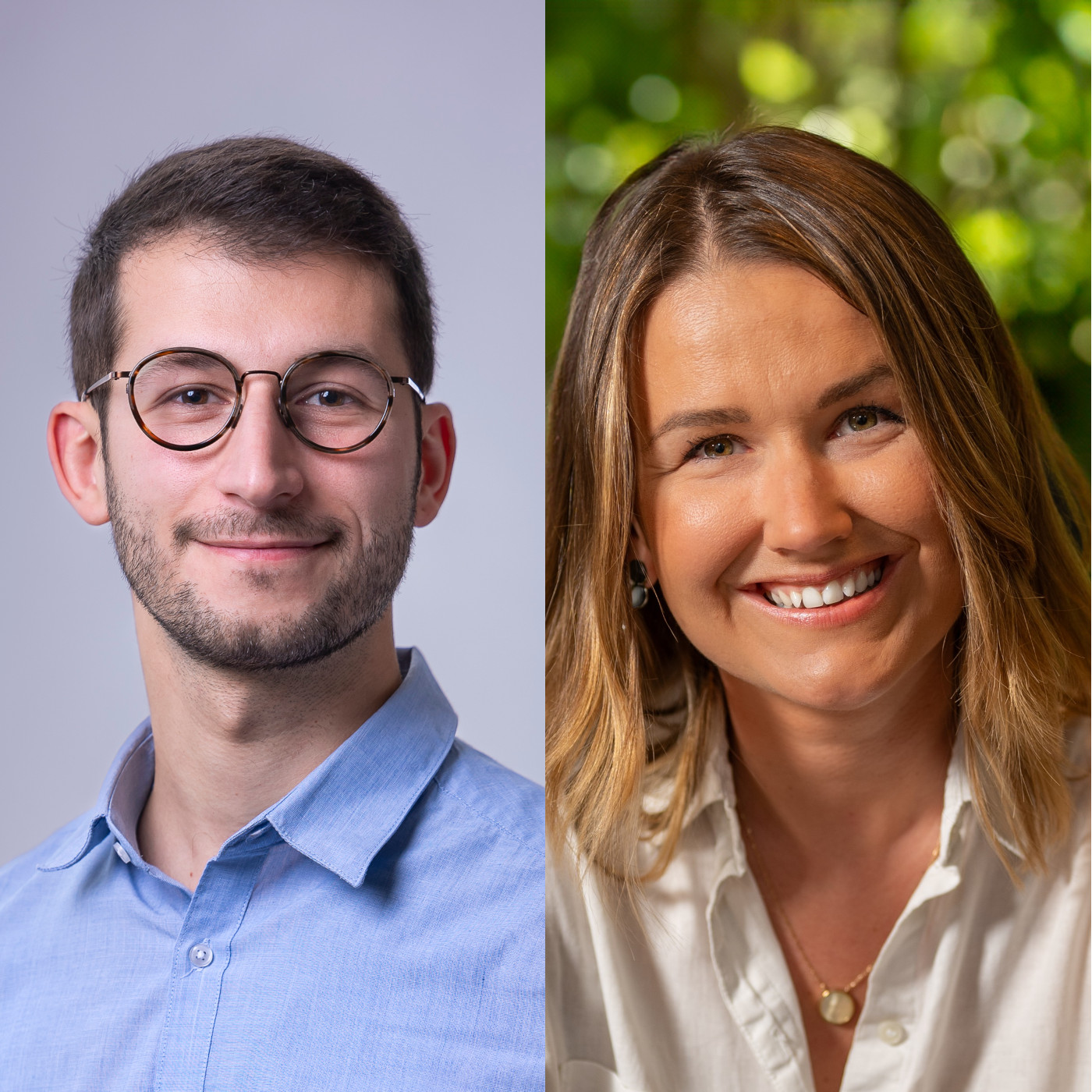
Big Closets Small PlanetCLIMATE ACTION WEEK: How much is enough? Can a "sufficiency" approach be applied to textile policy?The idea that the fashion and apparel industry can continue to grow by employing a green-growth model has been questioned by many leading thinkers. It is argued that for the industry to reduce its emissions at the pace and scale required and to operate within the planetary boundaries, overproduction and overconsumption must stop. This is especially challenging because, as critics explain, the dominant economic business model relies on growth, and business growth often neutralizes gains in emission reductions. During Climate Action Week 2024, Katia Dayan Vladimirova, Chief Executive Officer at the Post Growth Fashion Agency, and Luca Boniolo from ECOS...
2025-06-1352 min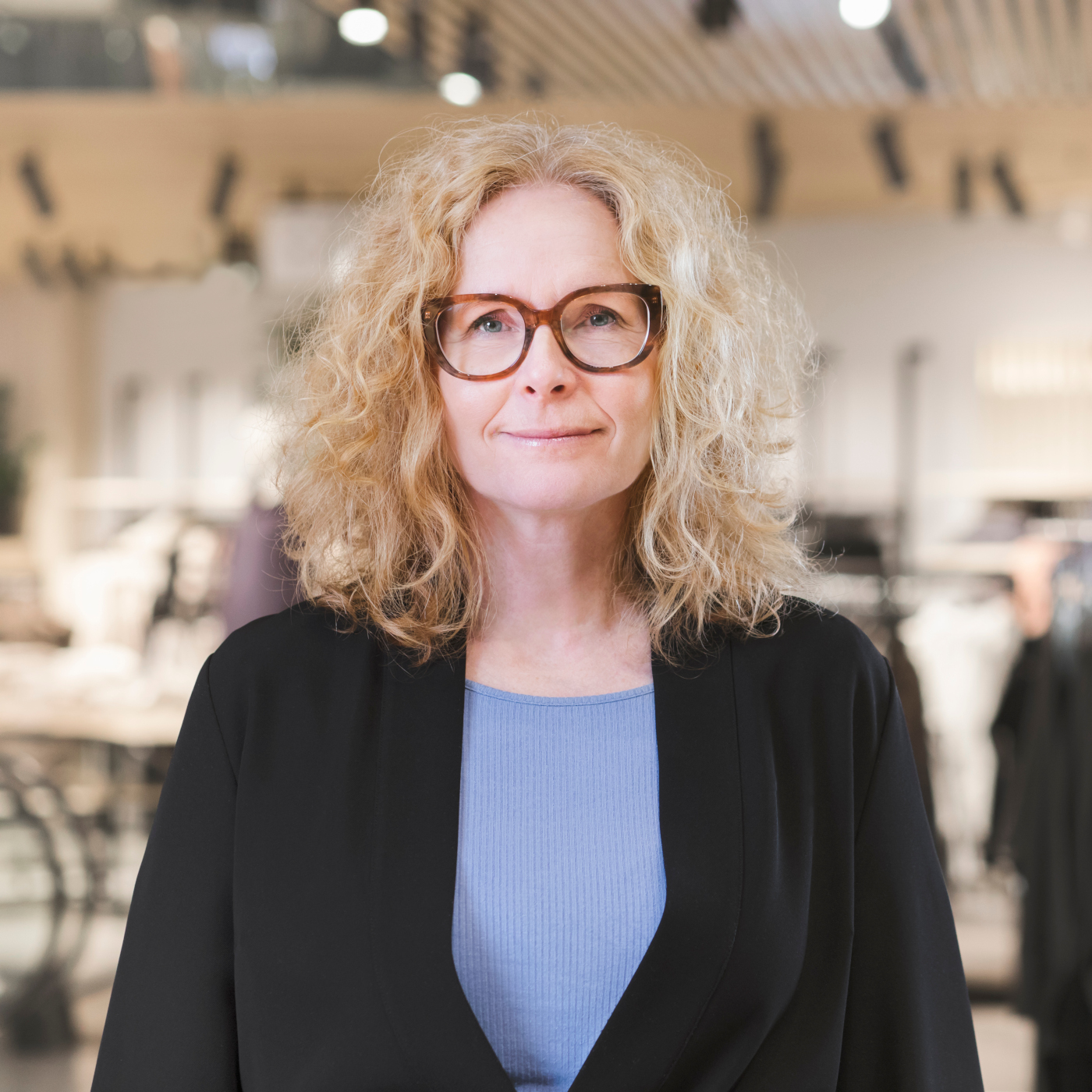
Big Closets Small PlanetCLIMATE ACTION WEEK: How Elisabeth Peregi, the Kappahl Group's CEO, views climate action.The Kappahl Group is a signatory in STICA's Company Climate Action Program. That is why we invited Elisabeth Peregi, CEO of the Kappahl Group, for a conversation about how a CEO from a midsized, privately owned apparel brand understands the challenges and opportunities with climate action. Michael and Elisabeth discuss if it's possible to achieve financial growth and reduce emissions simultaneously, if legislation and financial incentives are necessary to enable the Kappahl Group and the industry overall to achieve their climate targets, how long term relationships and authentic engagement are the keys to ensuring success in decarbonization, and even...
2025-06-1243 min
Big Closets Small PlanetCLIMATE ACTION WEEK: Status Update: Will the New York and California Fashion Act bills pass?During STICA's 2024 Climate Action Week, Maxine Bédat and her colleagues from the NRDC and the New York State Assembly updated us on the arguments for and status of the New York Fashion Act. Since then more has happened. Similar bills have been introduced in California and Massachusetts. In this conversation, Michael asks Maxine to provide an update on the status of the bills, including how they address climate action specifically, if and how the bills align or differ, why she thinks they will be effective, and why there are no major industry organizations and only a few global b...
2025-06-1242 min
Big Closets Small PlanetCLIMATE ACTION WEEK: Will EU's textile legislation reduce industry emissions at the pace and scale required?According to a recent report by the European Environment Agency, the greenhouse gas emissions from textile consumption in the EU was 355kg CO2e per person (based on 2022 data). So how does the EU Commission, which is responsible for developing and implementing the EU Strategy for Sustainable and Circular Textiles, think about climate action and textiles? Michael invited Matjaž Malgaj, the Coordinator of the cross-Directorate General team (DG ENV, DG GROW, and DG ENER) that works on making sustainable products the norm in the EU, and Head of Unit for Sustainable Products in DG ENV, to weigh in. Michael a...
2025-06-1254 min
Big Closets Small PlanetCLIMATE ACTION WEEK: Watchdogs Action Speaks Louder & Fashion Revolution want more from the industry.During the past few years, a number of NGO campaign organizations, sometimes referred to as watchdogs, have set their sights on accelerating climate action in the apparel industry. Michael sat down Ruth MacGilp from Action Speaks Louder and Liv Simpliciano from Fashion Revolution to discuss what they want brands and other stakeholders to be doing, their complementary methods for getting them to do it, and how they assess progress to date. Their conversation explored topics such as the importance of data and transparency to support informed action, new reporting demands that ask brands to disclose how much they are...
2025-06-1255 min
WATCHDOGGINGThe Laudes Foundation explains its approach for ensuring a Just Transition.The Laudes Foundation is one of the few philanthropic organizations that funds sustainability initiatives that specifically impact the apparel industry. The Foundation is also actively promoting the need for a Just Transition. That is why Michael Schragger invited Amol Mehra, human rights lawyer and Director of Industry Programmes at the Laudes ...
2025-06-1141 min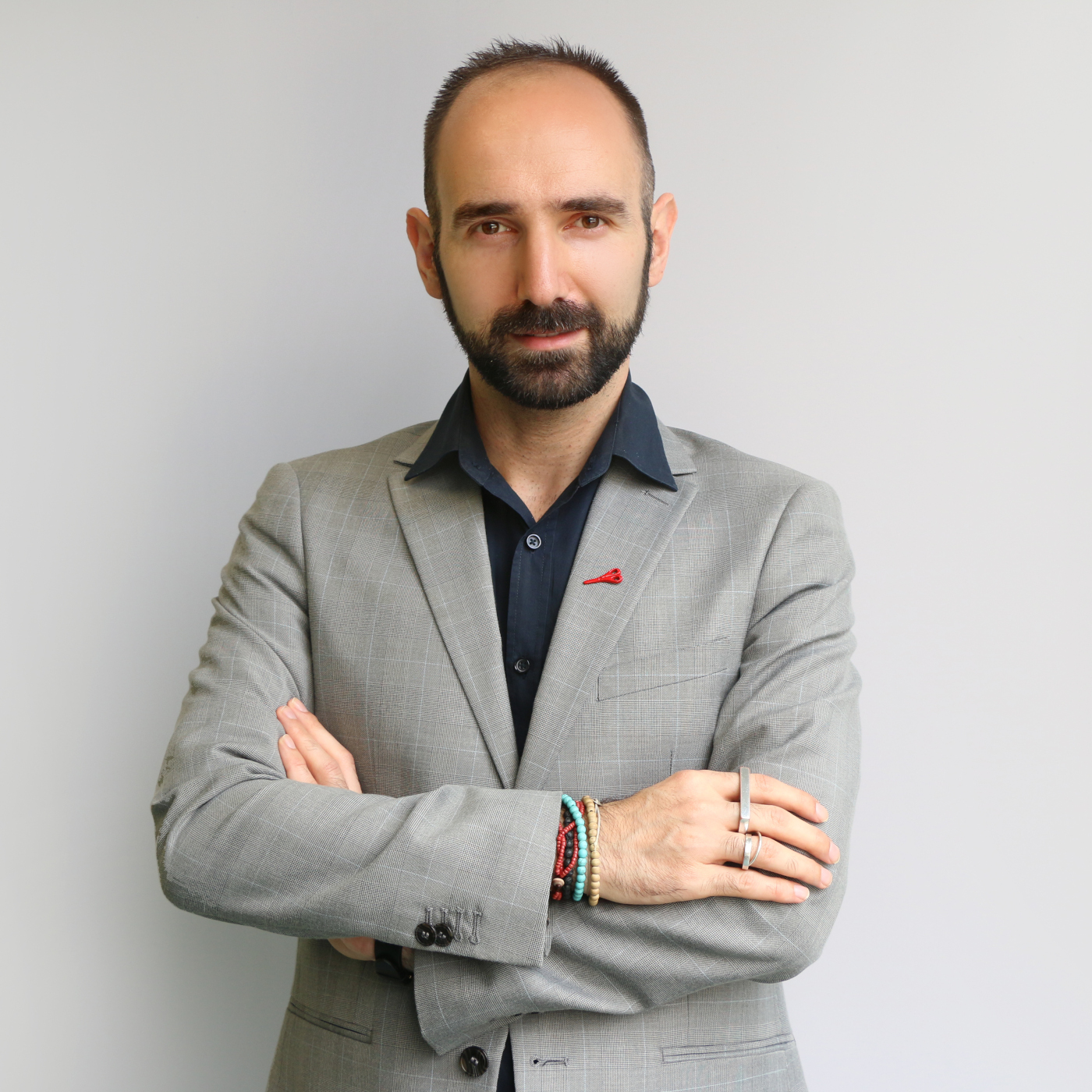
Big Closets Small PlanetCLIMATE ACTION WEEK: Professor Hakan Karaosman is still asking: "Where are the workers' voices?"Hakan Karaosman, whose mother was a garment worker, is a Professor in supply chain management from Cardiff University. Six years ago, Hakan and his colleagues asked "Where are the workers' voices in the discussions and decisions about climate strategies?" At that time no one was looking into fairness, inclusion, and justice in the context of climate action. Since then his research has uncovered inconvenient truths and best practices. In this conversation Michael and Hakan explore what is a "Just Transition" both theoretically and in practice. Hakan presents conclusions from his research, including his and his colleague's work on what...
2025-06-1150 min
Big Closets Small PlanetCLIMATE ACTION WEEK: Heat is putting Indian garment workers' lives at risk today. We need to act now.Nandita Shivakumar is a labor organizer and campaigner whose work has focused on gender justice, sustainability, and migrant rights in global fashion supply chains. She also represents the Tamil Nadu Textile and Common Labour Union (TTCU), a 12,000 worker strong, Dalit women-led trade union, working to ensure dignity, safety and decent work for textile workers. In this conversation Nandita describes how she is witnessing first hand the impacts of global warming and specifically increasing heat stress on garment workers. As she describes it, increasing heat and temperatures are having significant impacts on workers' health, particularly health problems for female workers...
2025-06-1129 min
Big Closets Small PlanetCLIMATE ACTION WEEK: The Laudes Foundation explains its approach for ensuring a Just Transition.The Laudes Foundation is one of the few philanthropic organizations that funds sustainability initiatives that specifically impact the apparel industry. The Foundation is also actively promoting the need for a Just Transition. That is why Michael Schragger invited Amol Mehra, human rights lawyer and Director of Industry Programmes at the Laudes Foundation, to explain the Foundation's definition, vision and strategy for enabling a Just Transition in the apparel industry. Michael and Amol discuss the problems with brand driven climate action and why suppliers and workers need to be in the center of the climate transition, why Amol thinks that...
2025-06-1141 min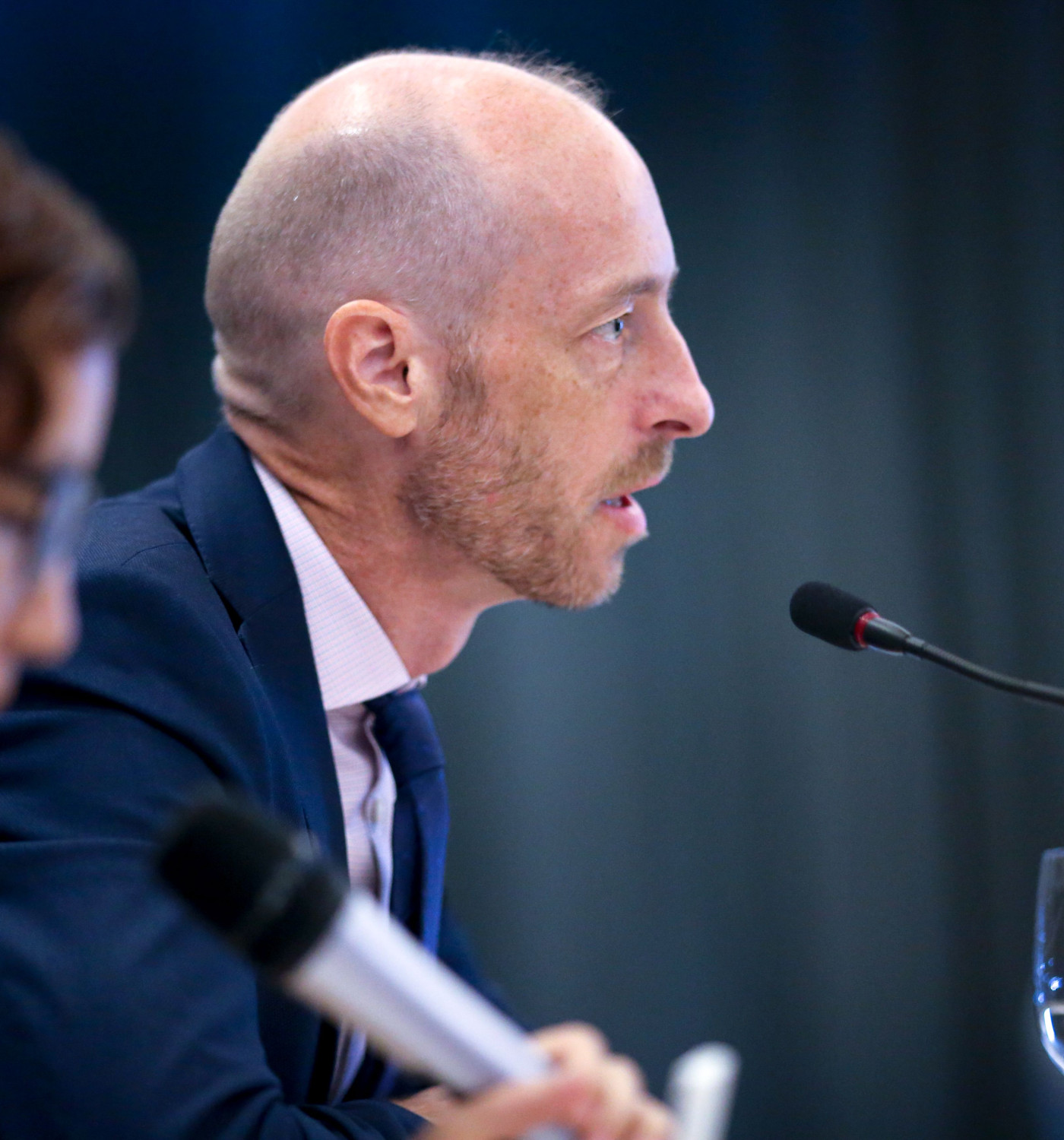
Big Closets Small PlanetCLIMATE ACTION WEEK: Jason Judd wants the apparel industry to take heat stress very seriously.Already today global warming is having an impact on companies, workers and communities in countries where a majority of global production currently takes place. In particular, heat stress is increasing. But while brands, buyers and manufacturers set targets to reduce their emissions, do they understand the impacts of heat stress on workers today and will they take sufficient action as this problem continues to grow? Are they also aware of the business risks they are facing if they fail to invest in climate adaptation in their supply chains? In 2023, the Cornell ILR Global Labor Institute, in collaboration with Schroders...
2025-06-1135 min
Big Closets Small PlanetCLIMATE ACTION WEEK: Apparel Impact Institute has a decarbonization strategy for the industry. Is it working?The Apparel Impact Institute (Aii) has become a central player in setting and implementing the apparel industry's decarbonization agenda. To achieve this, Aii conducts industry analysis, sets industry targets, engages brands, suppliers, philanthropic and financial institutions all with the aim to support brands and manufacturers to reduce their greenhouse gas emissions. In this conversation, Michael checks in with Lewis Perkins, President & CEO of Aii, to discuss how the work is progressing and what he sees as the current challenges and opportunities for the industry overall. Michael and Lewis discuss and debate who should be responsible for an overall industry...
2025-06-101h 02
Big Closets Small PlanetCLIMATE ACTION WEEK: Will climate-related innovations save us? We asked Lutz Walter from Textile ETP.Lutz Walter founded and leads the European Technology Platform for the Future of Textiles and Clothing (Textile ETP), a network of research and technology experts from the textile sector, including representatives from universities and technology centers from all over Europe. Lutz is a thoughtful thinker and analyst when it comes to the future of the European textile industry, and so we wanted to hear his views on the potential of the European industry to reach its science-based climate targets and what role innovation can and should play. Michael and Lutz discuss a range of topics, including why misinformation can...
2025-06-101h 02
Big Closets Small PlanetCLIMATE ACTION WEEK: WRAP believes we need a standardized way to measure circular business models.To reach their greenhouse gas emissions reduction targets and to transform their businesses, companies are hoping they can increasingly replace revenues from their current business models with revenues from circular business models – that is repair, resale or subscription services. The theory is that these models are better for the climate because they extend the life of garments and replace the need for virgin production. Still, while many companies have experimented with these new models, most report that they are still a minor part of their revenue stream and business strategy. This is because companies implementing these models face a nu...
2025-06-1036 min
Big Closets Small PlanetCLIMATE ACTION WEEK: The Good Fashion Fund has tested its impact model. It is time to scale up.The Good Fashion Fund (GFF) was launched in 2018 to demonstrate that an impact fund that supports textile suppliers in their sustainability journey, especially midsize manufacturers operating in tiers 1-3, can result in substantial climate and environmental improvements, positive social impacts and financial returns for investors. We invited those managing this fund, Bob Assenberg and Jayanth Kashyap, to explain why they believe the GFF model is now proven and, with refinements, can be scaled. This conversation explores the lessons learned to date from their specific partnerships in India and Bangladesh, including how best to combine both environmental and social impact...
2025-06-1055 min
Big Closets Small PlanetCLIMATE ACTION WEEK: Will we soon see a breakthrough for "next-gen" man-made cellulosic textiles?Nicole Rycroft from Canopy believes "next-gen" materials are to forests and climate as renewables are to fossil fuels and climate. Her organization's strategy is to remove the incentive to cut down forests, especially endangered forests, which play a crucial role in climate action. According to Nicole, man-made cellulosic fibers are the third largest fiber type used in apparel (think rayon, modal, viscose, Lyocell) and they are derived from forest ecosystems. Canopy reports that 300 million trees are cut down every year to make viscose and rayon textiles, and the demand is growing quite aggressively. That is why Nicole and Canopy...
2025-06-1048 min
Big Closets Small PlanetCLIMATE ACTION WEEK: Will H&M reach its climate targets and decouple emissions from financial growth?The H&M Group, a STICA signatory, is by far the largest emitter of greenhouse gases among those companies participating in STICA's Company Climate Action Program. From a sustainability perspective, H&M has been criticized for its business model, while in the context of climate action it has received praise for its climate leadership. Michael invited two of H&M's climate experts, Henrik Sundberg and Kim Hellström, to provide an update on the H&M Group's climate work to date. Henrik and Kim discuss their experience with climate calculations, including the challenges with primary data collection and carbon a...
2025-06-091h 03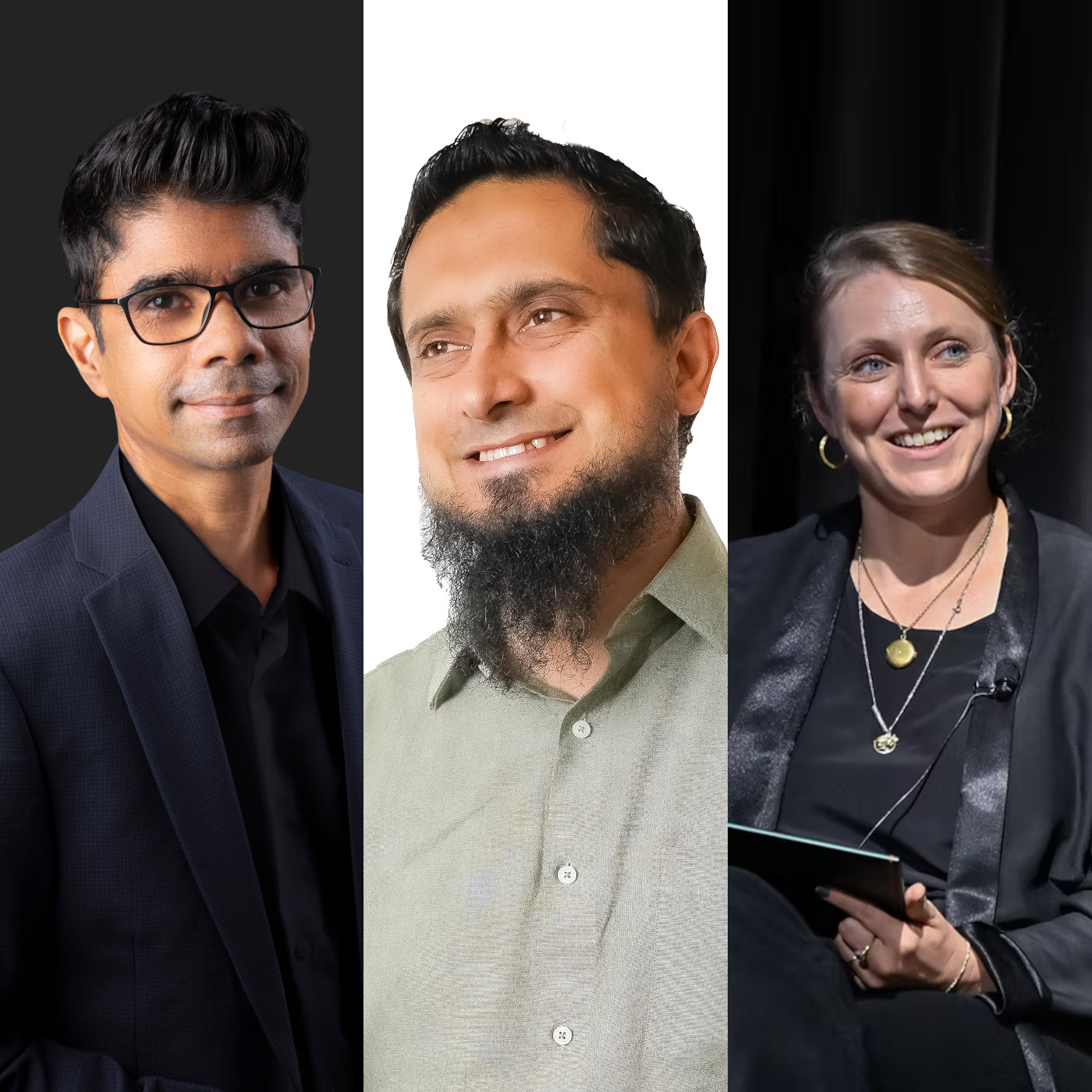
Big Closets Small PlanetCLIMATE ACTION WEEK: These manufacturers argue a paradigm shift is needed for successful climate action.In on-going discussions about who is responsible for bearing the cost of sustainability investments in the supply chain, one issue emerges repeatedly: that there are power imbalances between buyers and manufacturers and that more equal partnerships are needed if manufacturers are going to be able to invest in more sustainable solutions. It is therefore not surprising that this debate continues in the context of climate action. A growing group of stakeholders argue that the current approach to climate action by brands and buyers shifts the main responsibility to reach climate goals on manufacturers, and that this approach is not...
2025-06-091h 15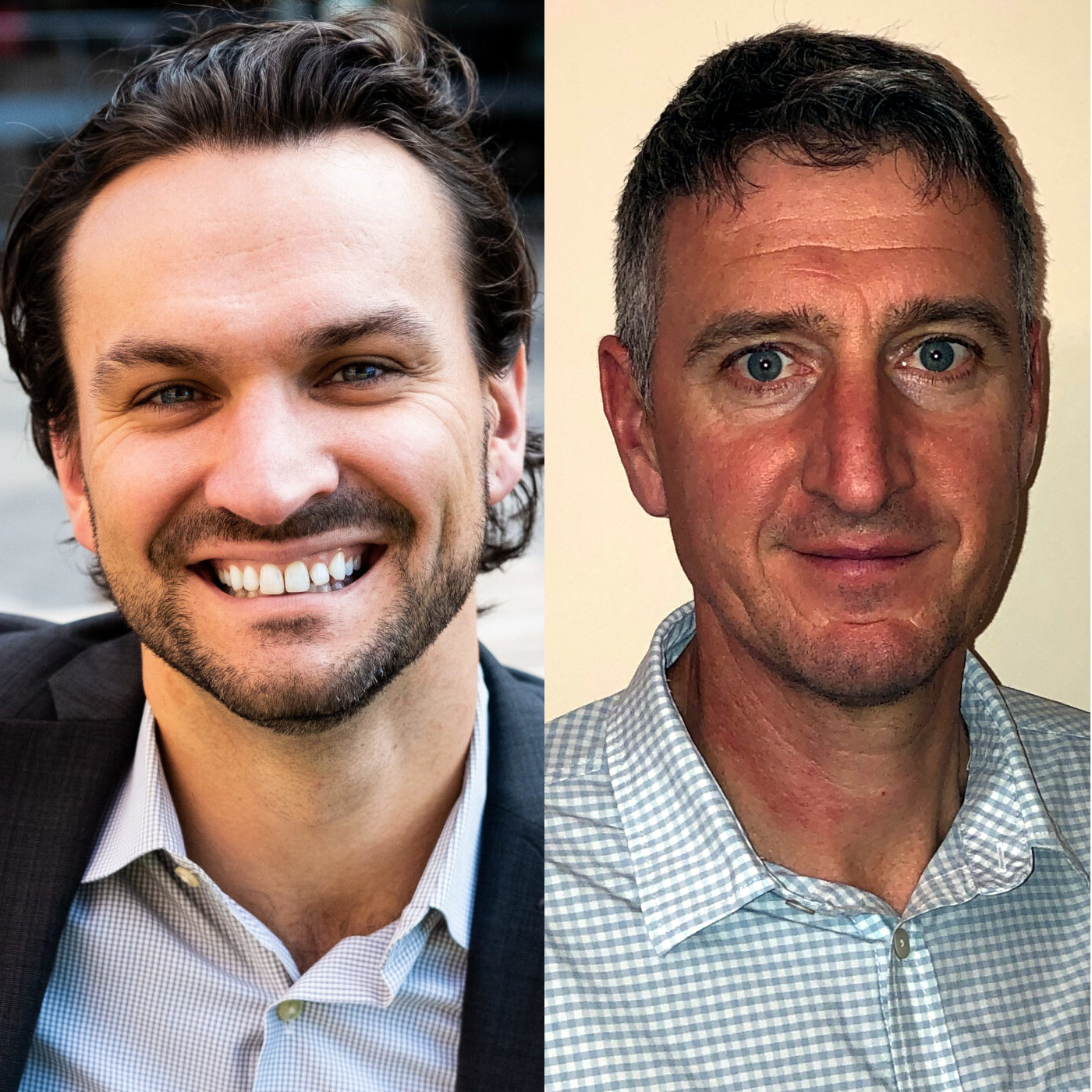
Big Closets Small PlanetCLIMATE ACTION WEEK: Will energy benchmarks for apparel change the game? Kurt & Phil think so.Experts working with the Apparel Impact Institute are developing the first quantitative performance evaluation benchmarks for apparel and textiles in order to clearly compare the performance of one facility vs another in the areas of energy and emissions. Kurt Kipka, Chief Impact Officer at Apparel Impact Institute, and Phil Patterson, founder of Colour Connections, are optimistic that this approach can dramatically accelerate decarbonization in the supply chain because it will reward better performing companies and give worse performers the feedback they need to improve. They explain that this approach has been used in chemicals and water management and is...
2025-06-0941 min
Big Closets Small PlanetCLIMATE ACTION WEEK: Factory decarbonization expert Peter Ford is surprisingly optimistic about 2030.We wanted a broader perspective on the state of decarbonization in apparel supply chains from a practitioner who is working actively in this field. So we turned to Peter Ford. Peter spent the past six years at the H&M Group, starting out managing factory-level environmental sustainability in Cambodia, Vietnam and Myanmar, before overseeing global decarbonisation implementation and the Green Fashion Initiative. Now, at EnergyLab Asia, he is using this knowledge to support the climate transition for the broader industry. Michael asked Peter to weigh in on a variety of current topics, including whether he is optimistic that the...
2025-06-0950 min
Ecotextile TalksFashion brands falling short on climate action, in conversation with Michael SchraggerIn this episode, host Philip Berman sits down with Michael Schragger, Founder & Executive Director of the Sustainable Fashion Academy, to discuss the fashion industry's complex journey towards sustainability. Fresh off the release of STICA's Progress Report from the end of 2024, Schragger gives a unique insight into the successes and challenges Scandinavian fashion companies face striving to meet climate targets, with lessons for the whole industry.. We discuss: Surprising findings from his annual survey of 55 leading Scandinavian companies working in this sector; The Sustainability Paradox - why companies struggle to align financial gro...
2025-02-0437 min
Big Closets Small PlanetTHOUGHT LEADERSHIP: Dr. Jennifer Hinton Thinks Not-for-Profit Business Models Can Help Address The Problems of Fast Fashion.Is our current for-profit economic model a root cause of many of today's sustainability challenges generally, and specifically in apparel and fashion? Dr. Jennifer Hinton, author and Post-Doctoral Fellow at The Centre for Environmental and Climate Science at University of Lund, has concluded so. She studies how societies relate to profit and how this relationship affects global environmental and social challenges. She has come to conclusion that a not-for-profit economy is better suited to our societal needs and that it should be applied to fashion and apparel as well. Listen in as we discuss Jennifer Hinton's analysis, her definition...
2024-05-0853 min
Big Closets Small PlanetTHOUGHT LEADERSHIP: For Ken Pucker, circularity is just another win-win fantasy & distraction for the fashion industry.Ken Pucker, former Timberland COO and current Professor at the Fletcher School of Law and Diplomacy at Tufts, recently published a series of pieces critiquing the circular agenda for fashion. In this content rich interview, Ken explains the history of how market-led voluntary solutions became the norm and the rise of what he calls Sustainability Inc., how circularity in the fashion industry is just another attempt to maintain the unsustainable status quo, the seven barriers preventing circularity from being a realistic solution, and what he thinks we need to do instead to ensure this industry can operate within the plane...
2023-06-291h 02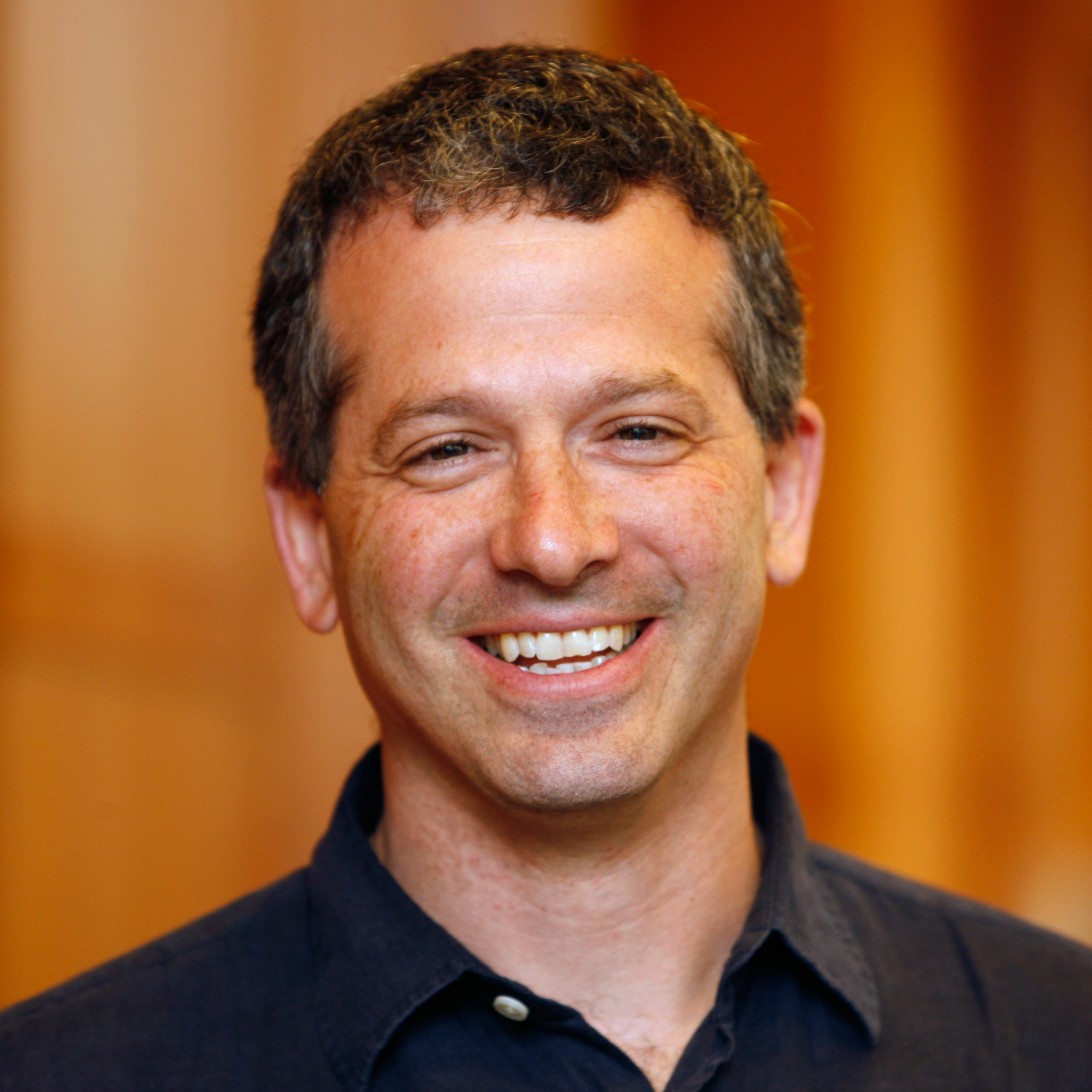
Free Range with Mike LivermoreS1E29. Rich Schragger on the Power of CitiesOn today’s episode of Free Range, Michael Livermore speaks with UVA Law colleague Rich Schragger a leading expert on local government, federalism, and urban policy and the author of City Power: Urban Governance in a Global Age.
Schragger begins the episode by discussing the idea of ‘city power,’ which is meant to challenge the usual narratives about local governments and cities. (0:42 - 2:41)
Livermore and Schragger turn to one view, of cities as selling a suite of policies and amenities. In his book, he discusses the mistake of misinterpreting sorting as a theory of economic growth. Schragger is skeptical of claims...
2022-12-141h 12
Big Closets Small PlanetHOT OFF THE PRESS: Climate & The 1 Trillion Dollar QuestionNow that climate action has rapidly moved to the top of the apparel industry's agenda, it is crucial that the industry moves from intention to action - and fast. The latest analysis indicates what we need to do, but the 1 trillion dollar question is how much capital will be required to do it. Enter the Apparel Impact Institute (AII) and Fashion for Good (FFG), who have now weighed in regarding how much financial outlay is needed. You've probably already guessed it: they arrived at 1 trillion US Dollars needed over the next 30 years. During this interview, Michael speaks with Ryan Gaines...
2022-04-0658 min
Big Closets Small PlanetHOT OFF THE PRESS: Fashion is endangering our forests. A new report from Canopy weighs in on what we need to do about it. Forests play a crucial role in promoting biodiversity, removing carbon dioxide from the atmosphere and supporting livelihoods, especially in poorer countries. But because wood is the basis for so many of our products, the pressure to exploit forests, usually in unsustainable ways, continues to increase. What does this have to do with the fashion industry? A significant percentage of the fibres used in fashion come from wood, and the market for wood based textile fibres is expected to grow. Our industry may therefore be indirectly contributing to the unsustainable management and even destruction of our remaining forests. In this episode, Mike speaks...
2020-12-161h 11
Big Closets Small PlanetHOT OFF THE PRESS: Are the Sustainable Apparel Coalition and the HIGG tools making a meaningful difference? A new report weighs in. It's been nearly a decade since Patagonia, Walmart and a number of other brands, retailers, manufacturers and NGOs established the Sustainable Apparel Coalition (SAC), an innovative industry collaboration. As the coalition's website states, its vision is "an apparel, footwear, and textiles industry that produces no unnecessary environmental harm and has a positive impact on the people and communities associated with its activities". In turn, members must commit to measuring and improving their social and environmental sustainability impacts, using the HIGG Index suite of measurement and management tools. A significant amount of resources and hard work has been invested in the...
2020-11-2553 min
Big Closets Small PlanetDEBATE: Part 2 - A proposed Swedish chemical tax on textiles - is this a case study in great government leadership or political greenwash?Sweden has a reputation for being a sustainability leader in many areas, so you can imagine how curious we were to learn about a newish proposal from the current Swedish government for a chemical tax on textiles. The proposal was recently made available to stakeholders for comment, and of course, a robust debate has ensued. Is this proposal, as presented today, going to lead to a reduction in harmful chemicals in Sweden and globally? Or is it a smoke screen for a government that is looking for ways to raise revenues for its national budget? And is the proposal a d...
2020-11-1152 min
Big Closets Small PlanetDEBATE: Part 1 - A proposed Swedish chemical tax on textiles - is this a case study in great government leadership or political greenwash?Sweden has a reputation for being a sustainability leader in many areas, so you can imagine how curious we were to learn about a newish proposal from the current Swedish government for a chemical tax on textiles. The proposal was recently made available to stakeholders for comment, and of course, a robust debate has ensued. Is this proposal, as presented today, going to lead to a reduction in harmful chemicals in Sweden and globally? Or is it a smoke screen for a government that is looking for ways to raise revenues for its national budget? And is the proposal...
2020-10-281h 19
Big Closets Small PlanetTHOUGHT LEADERSHIP: Sustainable investment expert Sasja Beslik thinks the fashion industry is a very poor performer and possibly a stranded asset.Sasja Beslik, Head of Sustainable Finance Development at J Safra Sarasin, fled Bosnia when he was 18 to escape the war. He ended up in Sweden and today spends his time leveraging the power of the financial sector to improve the world. He is particularly interested in the fashion industry's impact on people and has recently attracted attention for his calculations showing that a well-known fashion brand could afford to pay living wages to garment workers by increasing the prices on their clothes by only a few cents. In this interview Sasja weighs in on the apparel industry's sustainability performance a...
2020-10-1456 min
Big Closets Small PlanetMAKE YOUR CASE: Phil Patterson believes the way we use chemicals in the textiles industry is broken and here is his plan to change it! Phil Patterson, Managing Director at Colour Connections, has been working at the intersection between the textile industry and influential retail brands for over twenty years, and after some recent soul-searching he had an epiphany. He has come to the conclusion that the current way we use and dispose of chemicals is extremely wasteful and will not achieve the environmental and health improvements we are aiming for. During this episode, Phil outlines his arguments for why we need to move from the current single use, linear buy-use-dump model for chemical use to a circular model, and he explains what this new model shou...
2020-09-3026 min
Big Closets Small PlanetFACT OR FICTION: Alden Wicker and Sandra Roos think the fashion industry has a misinformation problem... do you agree? In this episode we continue to explore the most commonly repeated "factoids" in fashion and sustainability in order to determine whether they are substantive and useful. As a reminder, a "factoid" is information that is reported and repeated so often that it becomes accepted as fact. During Stockholm Fashion Week, Mike spoke with Alden Wicker, freelance journalist and founder of Eco-cult and Sandra Roos, Head of Sustainability at KappAhl and PhD in Environmental Systems Analysis, about commonly used social and environmental statements related to the fashion industry and if they are based on credible research and robust analysis. They then...
2020-09-1640 min
Big Closets Small PlanetTHOUGHT LEADERSHIP: Femke Groothuis argues that tax reform is the best way to transform the apparel industry at the scale and pace required.You've heard it before: The global environmental challenges we face are daunting and time sensitive. If we want to avoid catastrophic tipping points, we need to move quickly and ambitiously. If we want to achieve the Sustainable Development Goals (SDGs) we need to invest trillions of dollars. And so we scratch our heads and wonder if the actions we are currently taking are meaningful. We wonder if we must choose between economic development, job creation and the environment. And we cannot help but feel that even though our intentions are good, our actions amount to the equivalent of moving...
2020-06-2450 min
Big Closets Small PlanetLEADING CHANGE: What can a new psychology of climate action teach us about being better change agents?As a listener of Big Closets Small Planet, you are likely interested and engaged in changing the apparel industry. So for those of you who are keen to strengthen your change agent skills, we are introducing a new segment called Leading Change. In this first episode we are joined by Per Espen Stoknes who is that rare combination of thinker and doer. He is a psychologist, economist, politician, and the author of "What We Think About When We Try Not To Think About Global Warming". In conversation with Mike, Per Espen illustrates how psychological research helps explain why we...
2020-06-1054 min
Big Closets Small PlanetINDUSTRY UPDATE: Circular business models, like clothing resale and subscription rental, are taking off - but can they ever fully replace today's retail models and deliver the radical sustainability improvements we need?Experts and practitioners agree that simply improving upon today's take-make-waste linear business models will not ensure the apparel industry can operate within the planet's ecological boundaries. Instead, a new circular economy is needed and thus new circular business models. Circular business models, like resale and rental, are not actually new. But up until a few years ago, models like these were marginal, primarily employed by second hand stores and charity shops. How things have changed! Today, nearly every major brand has a circularity department working to develop and test these circular models as a means to increase their market share...
2020-05-2756 min
Big Closets Small PlanetFACT OR FICTION: Does the apparel industry really create more greenhouse gases than flights and shipping combined?In this new segment we will explore commonly repeated "factoids" in order to determine whether they are substantive and useful. Perhaps you have heard the statement that the production and use of clothing creates more climate impact than that of flights and shipping combined? A range of organisations - including the United Nations - have referred to this when promoting the need for climate action in the fashion and textiles industry. But is this statement true? Mike spoke with Simon Glover, a journalist from Ecotextile News who recently investigated this topic, and Sandra Roos, a textile researcher at RISE...
2020-05-1333 min
Big Closets Small PlanetINDUSTRY UPDATE: COVID-19 - Are millions of workers at risk? Will Bangladesh ever be the same?The impacts of the corona virus on the apparel sector have been fast and furious. We are all affected, but millions of low-wage garment workers are facing a potentially catastrophic situation. In this episode we talk to a number of experts and union representatives to better understand what is happening on the ground, what responsibility buyers have for ensuring workers get paid, what this crisis reveals about the apparel supply chain, and if Bangladesh will ever be the same. You will hear from a number of smart and committed people: Mark Anner, Associate Professor in Labor & Employment Relations; Anne-Laure...
2020-04-2943 min
Big Closets Small PlanetINSPIRING INNOVATION: Is digital clothing the future of fashion and a solution to overconsumption?The Fabricant, a digital fashion house, recently sold a piece of digital clothing - clothing that is only available in digital environments - for over 9000 USD. This experience helped them realise that their expertise in 3-d digital modelling could be used for a better purpose: creating a new industry sector for digital only clothing which is very good for business and the planet. Mike speaks with Amber Slooten, Fabricant's Creative Director and Adriana Hoppenbrouwer, Fabricant's Commercial Director about the potential for digital clothing to meet our short term fashion desires while reducing negative environmental impacts. We talk #outfitoftheday, market...
2020-04-1531 min
Big Closets Small PlanetHOT OFF THE PRESS: Pioneering analysis estimates 300 billion USD is needed by 2030......to develop and mainstream the sustainable apparel innovations required to meet key sustainability goals for the apparel industry. Listeners of this podcast series are familiar with our on-going focus on the crucial role finance and investment plays in enabling industry transformation. For the past two years SFA and Fashion for Good have been convening stakeholders to analyse this topic while calling for an analysis estimating how much financial investment is needed. Now we have it! A new report "Financing the Transformation in the Fashion industry" makes a strong case for what financial investment is needed. Michael spoke with two...
2020-03-2554 min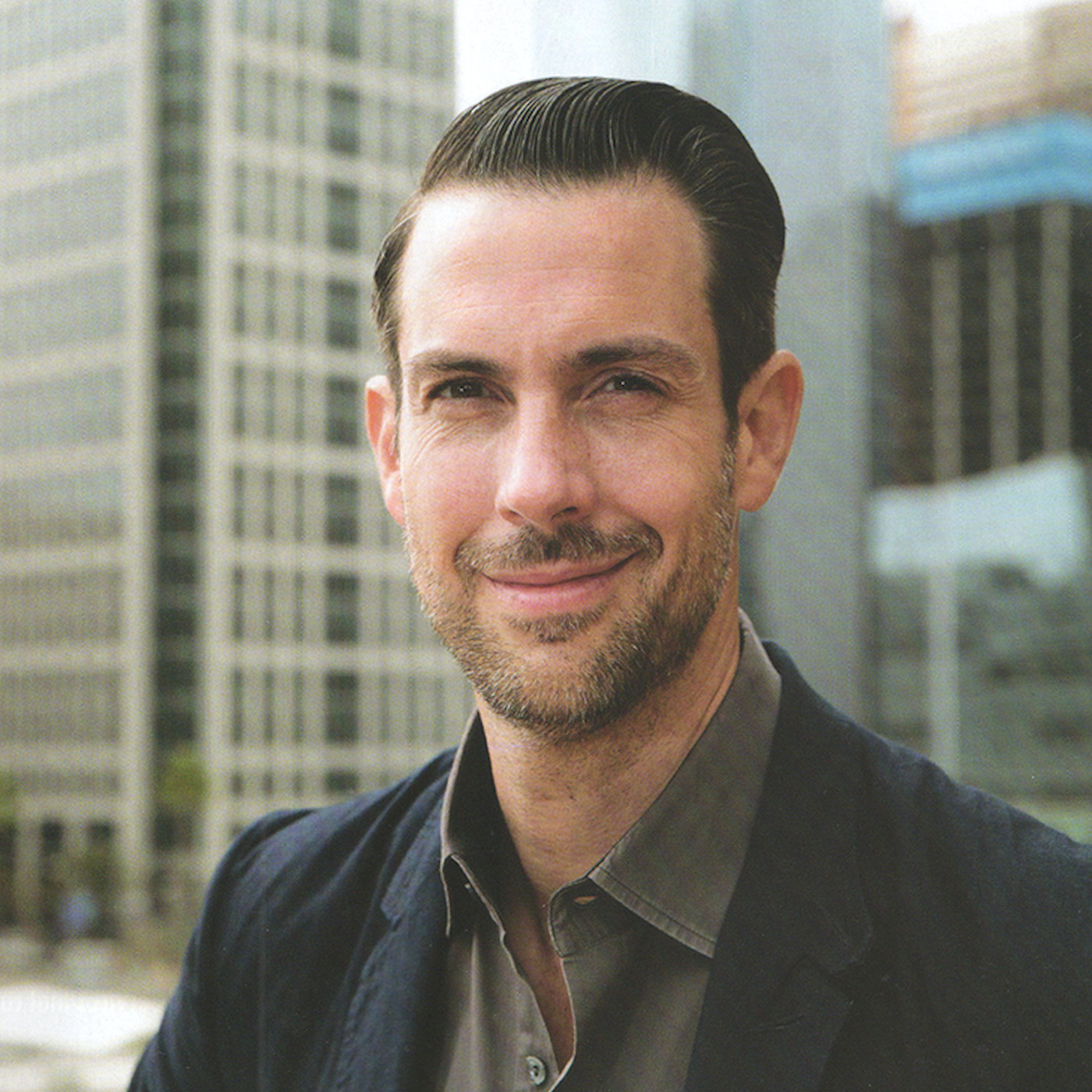
Big Closets Small PlanetMAKE YOUR CASE: Lewis Perkins warns the industry not to reinvent the wheelIn this new segment - Make Your Case - Big Closets Small Planet provides industry experts and stakeholders a platform to argue for a particular position or perspective. In this episode, Lewis Perkins, President of the Apparel Impact Institute (AII), outlines his organisation's vision and advice for accelerating change in the apparel industry. He makes a case for why the duplication of efforts will slow industry progress, and warns against starting new initiatives when existing initiatives can deliver the impact needed. He also outlines the key steps he believes needs to happen to ensure significant progress is made. This...
2020-03-1111 min
Big Closets Small PlanetINSPIRING INNOVATION: Will molecular bonding of fibers mean the end of polyester?Here is a quick dose of inspiration! At Planet Textiles, Mike spoke to Spencer Null about Natural Fiber Welding's breakthrough solution: enabling natural fibers like cotton to behave like polyester. Is this a game changer? It is if it means poor quality fibers can be upgraded to premium fibers... Listen to this bite size pod to get a quick lesson on cool chemistry, and get inspired by a potentially disruptive approach. This interview was recorded in June 2019. This podcast is supported by the C&A Foundation, the H&M Foundation, The Rylander Foundation, and Tencel. It is...
2019-11-2709 min
Big Closets Small PlanetBUSINESS LEADERSHIP: The optimist CEO of Lenzing, Stefan Doboczky, weighs in on circular business models, short-termism & watchdogs.Do you ever wonder how CEOs from some of our industry's most influential companies view the big social and environmental challenges we are facing today and the potential of business and innovation to adequately address these? TENCEL is a sponsor of this podcast series, so Michael took the chance and invited Lenzing's CEO Stefan Doboczky to discuss a wide range of topics in a recent interview. They touch upon Stefan's expectations of business leaders, the economics of sustainability investments, the circular model of Lenzing, the danger of short-termism, the conservative nature of the industry, climate change and forestry, and...
2019-11-1343 min
Big Closets Small PlanetINSPIRING INNOVATION: Can a simple phone call make invisible workers visible?Dr. Lea Esterhuizen, an expert in gathering sensitive data from scared populations, believes we are unwittingly eating and wearing products that have likely been made or assembled using forced labor. Typically the apparel industry has used the "social audit" to address this problem. But social audits provide an incomplete picture of the situation. "There is a serious problem with worker invisibility". And that is why Lea started &Wider. Listen in to hear Lea describe her company's elegant method to enhance social auditing by gathering anonymous data from workers - making the invisible visible. To paraphrase Lea, fast fashion has...
2019-10-3013 min
Big Closets Small PlanetINDUSTRY UPDATE: Finance & Innovation - Today's financing models don't cut it. We need new approaches that are structured in a way to help reduce risk for all parties involved.Mike had the unique opportunity to sit down with an impact investor and a vertical manufacturer to share their real world views on what it takes to accelerate the uptake of sustainable apparel technologies in the apparel supply chain. Tanvi Karambelkar, representing the newly launched Good Fashion Fund, introduces the fund's pioneering approach for providing financing to manufacturers who want to invest in high impact but often disruptive technologies - which are very high risk. Abhishek Bansal, representing Arvind - a vertical manufacturer based in India, describes the challenge of implementing radically new technologies in practice. Listen in as...
2019-10-1647 min
Big Closets Small PlanetINDUSTRY UPDATE: Sound the alarm? Or have we overestimated the problems associated with microfibers & microplastics?!? Between 2014 and 2016, an increasing number of journalists began reporting on disturbing new research showing that microfibers from synthetic garments were making their way from our washing machines into fish and other aquatic animals. Since then the textile industry has been scrambling to understand the extent of the problem and what our industry should do about it. It's now 2019, so what more have we learned since researchers first sounded the alarm? And what is our industry currently doing to address the challenge? Mike sat down with Sophie Mather from The Microfibre Consortium to get updated. Sophie has been working at the...
2019-10-0246 min
Big Closets Small PlanetINSPIRING INNOVATION: The robots are coming! This development may be good for the environment, but is this the beginning of the end for garment workers in production countries? The United States Military is required to make their clothing in the United States. But because very little clothing is produced in the United States today, the U.S. Military needed to find alternative solutions. Enter Pete Santora, who launched SoftWear Automation 13 years ago to respond to this challenge. Today his technology, which automates sewing by using robotics, is ready to be scaled not only in the U.S., but around the world. In this fascinating, fast paced discussion Pete and Mike discuss the environmental benefits of automation, Pete's perspectives on whether his technology will make garment workers in production...
2019-09-1817 min
Big Closets Small PlanetINDUSTRY UPDATE: A Sexy Update on the State of Chemical Management in Textiles Today. "As consumers, we've probably never been safer. As citizens, we have probably never been more unsafe..."At Planet Textiles, Mike Schragger spoke with two of his favorite chemical and textiles experts, Phil Patterson and Linda Greer, about the state of the industry regarding chemical management in textiles today. If this does not sound sexy to you, then you don't know Phil and Linda! In addition to getting a primer on chemical history and good and bad chemicals (hint: salt and starch can be bad too, in case you were wondering...), Phil and Linda get "into the weeds" by addressing some of the most important issues debated today, such as: 1) does the high profile ZDHC initiative...
2019-09-0456 min
Big Closets Small PlanetINSPIRING INNOVATION: Subcritical water… what the "!#@%" is that? And what can it do for the apparel industry?The founders of Tyton BioSciences are not personally interested in fashion, but that won't stop them from using subcritical water to help solve the current textile-recycling conundrum. Mike Schragger talks to Luke Henning, CFO of Tyton, about their unique process for separating cellulose from polyester in blended materials. This podcast is sponsored by the C&A Foundation, the H&M Foundation, The Rylander Foundation, and Tencel. It is produced in collaboration with Ecotextile News.
2019-06-0514 min
Big Closets Small PlanetINSPIRING INNOVATION: Apparel industry = waste.Nearly 6 million tons of leftover textiles - the equivalent 18 million new clothes - are wasted in South East Asia and China alone. If we could remanufacture these textiles and reuse them, or ensure we only produce what we need when we need it, we may be able to significantly reduce the environmental impacts of clothing production and support the transition to a circular fashion system. Mike Schragger talks with Nin Castle from Reverse Resources and Ian Brown and Dale Floer from Scalable Garment Technologies about their groundbreaking solutions for turning mountains of textile waste into valuable resources and for...
2019-05-2934 min
Big Closets Small PlanetBUSINESS LEADERSHIP: Climate Action - The H&M group boldly committed to becoming climate positive by 2040. But getting there requires unprecedented leadership and change. Is the H&M group in over its head?In a refreshingly candid and constructive interview, Mike spoke with the H&M group's Kim Hällström about what has happened since the company first made their important public climate commitment and what we can learn from the H&M group's insights and experiences in order to help the entire apparel industry reduce its emissions in line with a 1,5 degree warming pathway. Considering we are in a state of emergency when it comes to global heating, this is an interview you can't afford to miss. This podcast is sponsored by the C&A Foundation, the H&M...
2019-05-2249 min
Big Closets Small PlanetINSPIRING INNOVATION: What if using your credit card to purchase clothing could actually help combat global warming?If we knew the specific climate impacts of each of our purchases, such as the greenhouse gas emissions of our favourite dress or shoes, would we make more climate friendly purchases? And would the companies who make fashion and apparel products – now knowing that we know the climate impacts of our clothing purchases - offer more climate friendly options? In other words, can consumption and effective climate action go hand-in-hand or are we kidding ourselves? Mike spoke with Johan Pihl and Jacob Odqvist, two entrepreneurs who are developing a number of solutions that they say will make it easier fo...
2019-05-1532 min
Big Closets Small PlanetTHOUGHT LEADERSHIP: Innovation - Edwin Keh thinks that to solve the fashion industry's sustainability challenges we need to radically rethink R&D.Mike speaks with Edwin Keh, CEO of the Hong Kong Research Institute of Textiles & Apparel Limited, about his team's pioneering and surprising breakthrough in the area of textile recycling, his deep conviction that to accelerate the development and uptake of sustainable solutions our industry needs to do R&D very differently, and why industry innovation - for its own sake - is misguided. And if that's not interesting enough for you, the "professor," as Mike refers to him, also weighs in on the historical relationship between China and "the West", the fundamental limitations of today's business models, and why...
2019-05-0845 min
Big Closets Small PlanetINDUSTRY UPDATE: The Innovation Ecosystem - Do you want the inside scoop about which sustainable apparel innovations are hot and which are not? Then ask two passionate, albeit a bit wacky, business development and innovation experts for advice.Do you get excited when hearing about breakthrough sustainability apparel innovations - such as fibers made from fruit waste or blockchain technology being used to track and trace the origin and content of your clothing? Do you sometimes wonder if these breakthroughs are too good to be true? Greg Stillman and Rogier van Mazijk work with visionary entrepreneurs and impact investors every day. So Mike asked them for their perspectives on the hottest sustainable fashion innovations and business ideas right now. These guys are smart, so it is no surprise that Mike got more input than he bargained for...
2019-05-0245 min
Big Closets Small PlanetTHOUGHT LEADERSHIP: Jason Kibbey: "Beware of the 'Circular Fairies'!"Jason Kibbey, CEO of the Sustainable Apparel Coalition (SAC), has been been leading one of the most important sustainability trade organizations in the apparel sector for the past 8 years. Jason joins Mike Schragger online from his office in San Francisco to chat about the progress the apparel sector is making, his assessment of the SAC to date, and his warning that a circular vision for the apparel sector can become a distraction if it prevents the industry from investing in proven solutions that can be implemented today. This lengthy interview is full of nuanced opinions and inspiration for you susta...
2018-12-121h 01
Big Closets Small PlanetINDUSTRY UPDATE: Finance & Innovation - Show me the money!Sustainable solutions are emerging but is there enough investment capital available to ensure they succeed? Mike Schragger talks with Fashion for Good's Rogier van Mazijk about the innovation process, the exciting sustainable solutions that could save the fashion industry, and the need for billions, if not trillions of dollars to ensure these innovations can succeed. Investors, innovators, sustainability practitioners and nerds - you will love this, and Rogier is a joy to listen to! This podcast has been produced in collaboration with Ecotextile News.
2018-11-2848 min
Big Closets Small PlanetTHOUGHT LEADERSHIP: Linda Greer believes in radical transparency!Linda Greer, Senior Scientist at the National Resources Defense Council (NRDC) joins Mike Schragger online from her office in Washington, D.C. to share her experiences working to improve the apparel sector, her initial ideas for creating a climate roadmap for apparel and her conviction that transparency as it is practiced today is not effective enough. This lengthy interview is full of nuanced opinions and advice for you sustainability change agents, so pour yourself a cup of tea, turn off your alerts, and enjoy this brain candy. This podcast has been produced in collaboration with Ecotextile News.
2018-10-3150 min
Big Closets Small PlanetINSPIRING INNOVATION: Akshay Sethi is convinced that all of our clothes will be made from recycled materials by 2030.Mike Schragger talks to the smart and savvy Akshay Sethi about the science behind polyester recycling, the rapid development of the his company Moral Fiber, the steep learning curve he has faced when starting a company directly after graduating from university, and his conviction that all of our clothes will be made by recycled materials by 2030. This podcast has been produced in collaboration with Ecotextile News.
2018-10-1728 min
Big Closets Small PlanetINDUSTRY UPDATE: Climate Change - Are you and your company serious about helping to solve the global climate crisis?Then Cynthia Cummis & Michael Sadowski from the World Resources Institute think you should start by setting science-based targets for reducing your climate emissions. Cynthia & Michael joins Mike Schragger online from their offices in Washington, D.C. and Portland, Oregon to discuss the apparel industry's surprising impact on the climate, the Science-Based Targets Initiative they are leading for the apparel sector, and what they think needs to happen to transform the sector so it operates within a 2 degree Celsius warming pathway as outlined by the IPCC. This lengthy interview is full of nuanced opinions and advice for you sustainability nerds...
2018-10-0356 min
Big Closets Small PlanetINSPIRING INNOVATIONS: Style Lend & Good On You are betting that they can improve your consumer behavior.What if customers could improve the environment and make money by renting out their clothes simultaneously? And whom do you trust to provide an honest assessment about the ethical and environmental performance of apparel products and the companies behind them? Mike Schragger talks to Lona Alia from Style Lend and Sandra Capponi from Good On You, two entrepreneurs who believe their solutions will empower customers and drive change. This podcast has been produced in collaboration with Ecotextile News.
2018-09-1926 min
Big Closets Small PlanetOUTING THE FASHION INDUSTRY: A crash course in sustainable fashion.If you are new to the field of sustainability and/or fashion and apparel and want to quickly up get up to speed, then this podcast is for you. Mike Schragger, the host of Big Closets Small Planet, uses these 12 minutes to explain why we need to completely transform how we produce, use and dispose of fashion and apparel - before its too late.
2018-09-0112 min